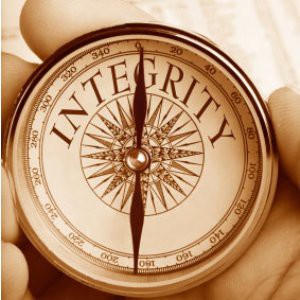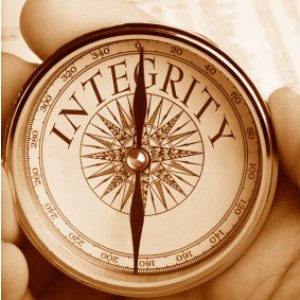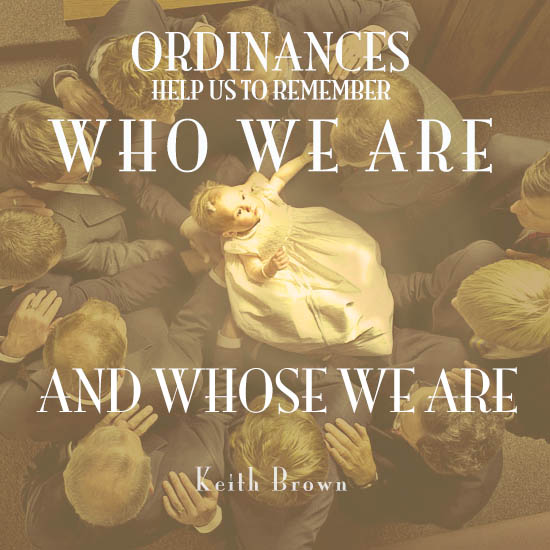The word “morals” is derived from the Latin word “moribus” which is translated as our English word “behavior.” The Latin phrase socialis moribus is then translated as social behavior. Morality is thus defined as the principles that govern the distinction between right and wrong or good and bad behavior. Therefore, when we speak of a person having morals, we are generally referring to that person’s standards of behavior or belief system which is governed by principles that enable him to determine what is or is not socially acceptable.
 A compass is an instrument containing a magnetized pointer that shows the direction of magnetic north and bearings from it. A traveler who may be lost and is desperately seeking the direction that he should go in order to reach his desired destination finds a simple instrument such as a compass to be indispensable. However, the instrument which he holds in his hands will only serve its purpose of directing him if he is willing to adhere to the direction that its needle points for him to go. If he chooses not to trust the guidance of the instrument, then the instrument will be rendered useless, and he is left to his own means of finding his way.
A compass is an instrument containing a magnetized pointer that shows the direction of magnetic north and bearings from it. A traveler who may be lost and is desperately seeking the direction that he should go in order to reach his desired destination finds a simple instrument such as a compass to be indispensable. However, the instrument which he holds in his hands will only serve its purpose of directing him if he is willing to adhere to the direction that its needle points for him to go. If he chooses not to trust the guidance of the instrument, then the instrument will be rendered useless, and he is left to his own means of finding his way.
Our life is a journey, and in order to find our way to our desired destination, which is back home to our loving Heavenly Father who awaits us, we need guidance and direction. Within each of us is a moral compass that is designed to guide our decisions based on morals and virtues. It is our morals or behaviors that determine the magnetic north of our compass. Choosing wrong or bad behaviors will cause our compass to be off by even the slightest of degrees, and we will find ourselves traveling down paths that often lead to destruction, misery, and woe. However, if we choose right or good behaviors, our moral compass will guide us along the paths that we should follow, and if we endure the journey to the end, we will reach our desired destination.
Thomas S. Monson, President and Prophet of The Church of Jesus Christ of Latter-day Saints (inadvertently referred to as the Mormon Church by the media and others), in his address titled Examples of Righteousness delivered during the Priesthood Session of the April 2008 General Conference, made the following remarks concerning having a clear conscience, following our moral compass, and always doing what we know to be right:
You know what is right and what is wrong, and no disguise, however appealing, can change that. The character of transgression remains the same. If your so-called friends urge you to do anything you know to be wrong, you be the one to make a stand for right, even if you stand alone. Have the moral courage to be a light for others to follow. There is no friendship more valuable than your own clear conscience, your own moral cleanliness — and what a glorious feeling it is to know that you stand in your appointed place clean and with the confidence that you are worthy to do so.
Charting Our Path with a Clear and Consistent Moral Compass
Following counsel such as that given by President Monson is may not always seem easy especially when we live in a world where our societies are too often plagued with violence, hatred, and immorality. Things that were once considered taboo by society are rapidly becoming accepted as the norm in many circles, and those things which have always been accepted by society as the norm, are slowly being downgraded to a matter of individual choice or suitability.
According to a new Gallop Values and Beliefs poll which is conducted each May, “Some 72 percent of Americans said moral values in America are “getting worse,” compared with 20 percent who said they are “getting better” and 6 percent who said they are “the same,” [1] The results of the poll further revealed,
But the discontent is palpable — only 19 percent say U.S. moral values are “excellent or good,” while 44 percent say they are “poor” and 36 percent say “only fair.”
“The net result of these two trends is that seven in 10 Americans have a negative view of moral values” in the nation, said Alyssa Brown, author of the Gallup report, issued Wednesday. [1]
A separate Gallup Poll report, issued on Monday, 20 May 2013, indicates an increase in the social acceptability regarding the issues of same-sex relationships, use of birth  control, getting divorced, sex outside of marriage between a man and a woman, having a baby outside of marriage, and using human embryos for medical stem-cell research. Interesting enough, according to the poll, Americans rated adultery as being highly taboo.
control, getting divorced, sex outside of marriage between a man and a woman, having a baby outside of marriage, and using human embryos for medical stem-cell research. Interesting enough, according to the poll, Americans rated adultery as being highly taboo.
The Apostle Paul in his letter to young Timothy must have looked forward to our day when he recorded the words found in 2 Timothy 3:1-7:
This know also, that in the last days perilous times shall come. For men shall be lovers of their own selves, covetous, boasters, proud, blasphemers, disobedient to parents, unthankful, unholy, without natural affection, trucebreakers, false accusers, incontinent, fierce, despisers of those that are good, traitors, heady, high-minded, lovers of pleasures more than lovers of God; having a form of godliness, but denying the power thereof: from such turn away. For of this sort are they which creep into houses, and lead captive silly women laden with sins, led away with divers lusts, ever learning, and never able to come to the knowledge of the truth.
Elder Joseph B. Wirthlin once stated,
We cannot cope with the confusions and the challenges of this world unless we use a clear and consistent moral compass that will unerringly take us through our own personal trials and the tugs and pulls of our own temptations—a compass that will chart our way to peace of mind, self-worth, and joy. [2]
Four Eternal and Absolute Truths
In his address given during the Saturday morning session of the 167th Semiannual General Conference of The Church of Jesus Christ titled Four Absolute Truths Provide an Unfailing Moral Compass, Elder Joseph B. Wirthlin stated that our moral compass is built around four absolute truths:
The first absolute truth is that there is a loving Father in Heaven, and His Son, Jesus Christ, is our personal Savior—a more certain truth than any worldly fact. This concept is expressed with unmatched eloquence in 1 John: “Hereby perceive we the love of God, because he laid down his life for us: and we ought to lay down our lives for the brethren” (1 John 3:16.) Nothing could provide a truer “north” for every person’s own moral compass.
. The second absolute truth is that there is an adversary, Satan, the tempter, who would lead us away from God and His infinite peace. Note that the Hebrew translation for devil is the “spoiler.” Satan is the spoiler because he would confound our moral compass and spoil our journey back to a loving Father in Heaven.
The third absolute truth is that all of us choose our own course, endowed by agency. This truth is clearly expressed in the Book of Mormon: “Wherefore, men are free … free to choose liberty and eternal life, … or to choose captivity and death, … for [the devil] seeketh that all men might be miserable like unto himself” (2 Nephi 2:27.) Yes, who we are is the sum of all the choices we make. We should always remember that our choices do not begin with the act, but in the mind with the idea. As a poet stated, “Sow a thought, and you reap an act; sow an act, and you reap a habit; sow a habit, and you reap a character; sow a character, and you reap a destiny.”
The fourth absolute truth is that the temptations of the devil can always be overcome by renewed faith in God and by repentance. Yes, when we stray from that narrow and straight way, marked by our moral compass, our footing can be restored on the road that surely leads to salvation and eternal life. When Christ went to the Garden of Gethsemane, clearly knowing of His impending Crucifixion, He prayed to His Father for His Apostles as well as for each of us. In that prayer, He commands us to avoid evil, but in His infinite compassion He also asks the Father to “keep [us] from the evil” (John 17:15.)
Elder Wirthlin further remarked, “Yes, we can experience wisdom, peace of mind, self-worth, and joy not only in the life to follow but in the life each of us lives today by walking in the Savior’s footsteps, guided by an unfailing compass calibrated on these four eternal and absolute truths.” [2]
Let us take heart and be encouraged from these words of the Apostle Paul:
For God, who commanded the light to shine out of darkness, hath shined in our hearts, to give the light of the knowledge of the glory of God in the face of Jesus Christ. But we have this treasure in earthen vessels, that the excellency of the power may be of God, and not of us. We are troubled on every side, yet not distressed; we are perplexed, but not in despair; persecuted, but not forsaken; cast down, but not destroyed (2 Corinthians 4:6-9.)





